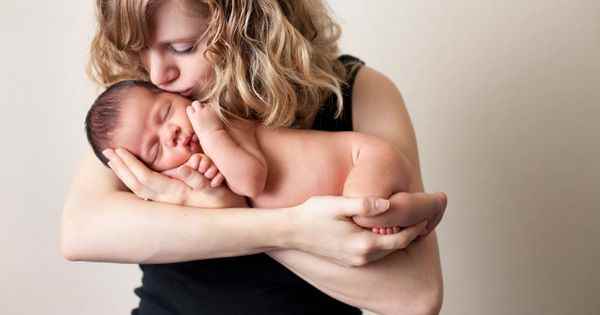Posted on 12/04/2021
1 min read
An Israeli study makes the link between the closeness of the mother and her child from birth and the empathy that he will develop in adulthood.
A cuddly child will be an empathetic adult, according to an Israeli study published in the journal PNAS. For two decades, researchers followed around 100 people from birth to adulthood. They were thus able to see that the effects of maternal contact, early in their life, have measurable consequences on the “social brain” years later. The children followed were in a two-parent family and whose income is above the poverty line, the study said.
To measure the impact of mother-to-child contact, researchers divided newborns into three categories. The first includes babies born at term, in good health, whose contact with the mother is facilitated. The second concerns premature babies who have been incubated and have not received physical contact with their mother for at least two weeks. The last category concerns more stable premature births whose mothers have committed to having skin-to-skin contact at least one hour per day for at least 14 consecutive days.
The results of this study showed that “the establishment of contact between mother and newborn child improved social synchronization throughout development, from infancy to adulthood.”
Track your pregnancy week after week
Two areas of the brain sensitized
Researchers have noticed that two areas in the brain are particularly active. The amygdala, which is the unconscious identification center of emotions as well as the insula, the area where one integrates signals from one’s own body with signals from another person’s emotional state.
The first year is essential
The first social synchronizations occur from three months and continue throughout life. Researchers stress the importance of having parents “loving and comforting“. Even if the researchers were only interested in the child-mother relationship, they report that the role of the father remains important.”When fathers are engaged in infant care, there are avenues that would make fathers equally beneficial to the baby.“.
.
dts3
